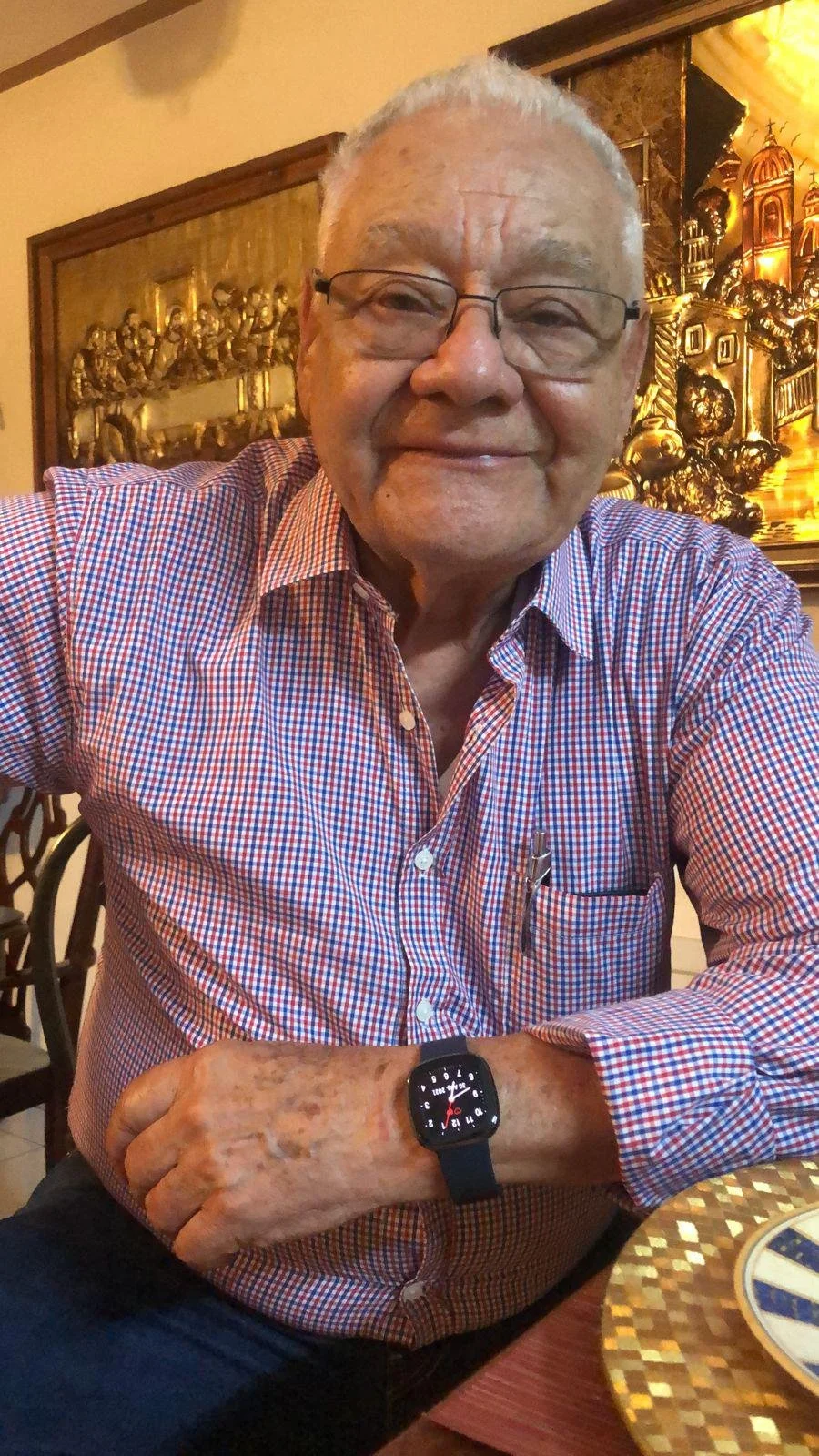The Gifts My Father Left Behind Part 1: The Meaning of Excellence
You know that feeling when someone you love leaves this world, and suddenly you realize the wisdom they shared was a gift never just meant for you alone? That's where I've been since my father passed this June.
He lost his battle with lung cancer—not the kind that comes from smoking, but the type firefighters get from asbestos exposure. And that's exactly what he was: one of the founders of the Honduran fire department, a man who spent part of his life running toward danger to help others.
During his funeral, person after person came up to us—some I knew, others complete strangers—to tell us he'd been like a father to them. A mentor who changed their trajectory. Dad came from humble beginnings and never forgot where he started. He left us many legacies, but perhaps most importantly, he somehow made everyone around him believe they could do better than they thought possible.
After the service, we sat down with the employees of the company he and Mom had started in 1973, before I was even born. This small yet resilient operation had survived military coups, economic crashes, COVID, and even Mom's passing in 2019.
I asked them: "What do you want to keep alive from how Dad did things?" The stories began to flow, and between the laughter and tears that followed, four clear themes emerged. Today, I want to share the first one with you.
Excellence (And Why It's Not What You Think)
Excellence has become the vanilla ice cream of inspirational words—technically fine, but so bland and overdone that most of us just tune out the second we hear it. Which is a shame, because buried under all that corporate fluff is something actually worth talking about.
Here's what I learned watching my father: excellence isn't about being perfect. It's about being better—better than yesterday, better than expected, better than you thought you could be.
Excellence comes from the Latin excellentia, meaning "to rise above." The twist? It's not about rising above others to prove your worth. It's about rising above your own limitations, your own fears, your own yesterday.
We've confused excellence with perfection, but they're entirely different creatures. Perfection is that friend who never lets you leave the house because your outfit isn't quite right. Excellence is the one who says, "You look great—let's go have an adventure."
Brené Brown nails this when she explains that perfectionism isn't really about achievement—it's about earning approval and avoiding shame. But perfectionism actually breeds shame because it sets impossible standards. Excellence? Excellence is perfectionism's wise, compassionate older sibling that says, "You're worthy right now, and you're also capable of growth."
Dad learned this too. He was a perfectionist early on (trust me, we felt it), but wisdom taught him something profound: perfectionism makes you small and fearful, while excellence makes you brave and generous.
Three Ways We Practice Excellence
Here's what I've discovered about bringing this kind of excellence into our daily lives:
1. Make Friends with "Good Enough" What if I told you that perfect doesn't exist, and chasing it will only leave you anxious and stuck? Right now, as I write this, I'm practicing what I'm preaching. These words aren't perfect, but they're real and they're mine, and that's enough to start.
How many brilliant ideas stay locked in our heads because we're afraid they won't be flawless? What if we focused on making them meaningful instead of perfect?
2. Stay Endlessly Curious My father never stopped asking "What if?" and "Why not?" When people would compliment him on a brilliant idea, he'd shake his head and say, "No, I'm not smart—I'm just curious." That curiosity became excellence's secret weapon because it kept him growing, experimenting, and discovering.
Think about this: chocolate chip cookies, potato chips, and cornflakes all came from "mistakes"—moments when someone was curious enough to see possibility instead of failure. What new approaches could you try this week? What would happen if you experimented with that idea you've been sitting on?
3. Embrace the Journey Excellence isn't a destination—it's a way of being that looks different every day. Some days, your best might be powering through a challenging project. Other days, it might be taking a nap when you're exhausted or going for that three-hour hike while listening to an audiobook.
As Simon Sinek reminds us, it's an infinite game—we're playing to keep playing, to keep growing, to stay in the game.
When COVID hit, we all faced the same storm but sailed in different boats. Some chose health changes, others creative projects, still others deeper connections. The excellence wasn't in what happened to us, but in how we chose to meet the moment with intention and heart.
The Legacy Lives On
As I write and share these thoughts, I'm taking my own leap of faith. I'm very much a work in progress, but I keep hearing Dad's voice near the end: "I'm just sad to leave with all these ideas still in me."
But here's what I want to tell him now: Dad, you did an excellent job. You left us all thinking and striving to be better humans. You left the world better than you found it because you chose excellence over perfection, growth over safety, service over comfort.
And maybe that's the real invitation for all of us—not to be perfect, but to embrace excellence. To do our best with what we have, where we are, right now.
What would it look like for you to choose excellence in one small way today?



